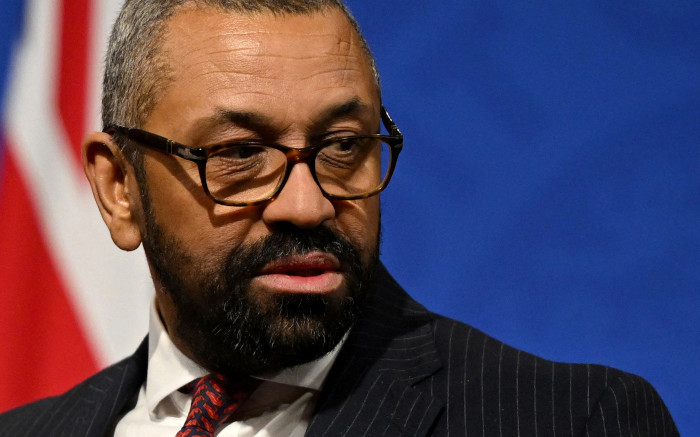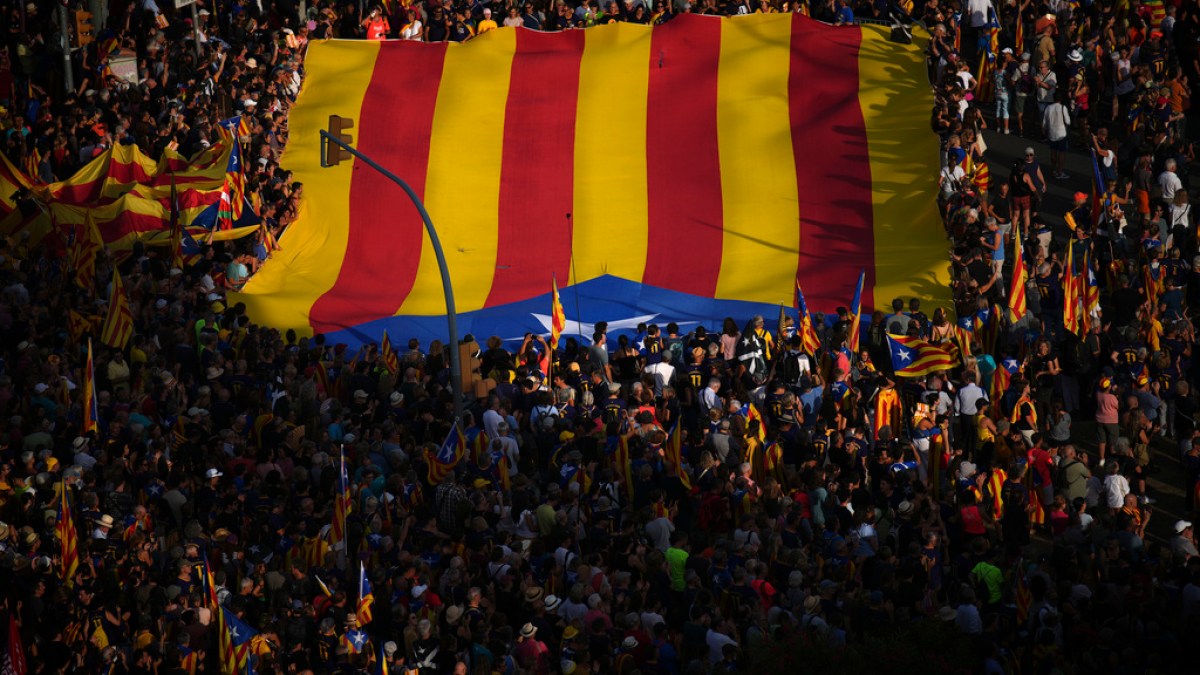
Madrid, Spain – After Spain recognized Palestinian statehood, Pedro Sanchez met in Madrid with his Palestinian counterpart, Prime Minister Mohammad Mustafa, and leaders of several Middle Eastern countries.
The group, which later posed for a photograph on the steps of the Moncloa Palace in the Spanish capital, included Saudi Foreign Minister Prince Faisal bin Farhan Al Saud, Qatari Prime Minister Sheikh Mohammed bin Abdulrahman Al Thani and the foreign ministers of Turkey and Jordan.
“On behalf of the President [Mahmoud] “Abbas and the Government of Palestine, the Palestinian people, we warmly welcome Spain's recognition of the State of Palestine,” Mustafa said of Spain's historic step. “This recognition strengthens our determination to continue our struggle for a just and lasting peace.”
Ireland, Norway and Slovenia have joined Spain's move, which has been strongly condemned by Israel.
Israeli Foreign Minister Israel Katz sent an angry direct message to Sanchez via X, writing: “Hamas thanks you for your service,” along with a 17-second video that alternated between images of flamenco dancers and apparent scenes of the Palestinian group's incursion into southern Israel on October 7.
.@sanchezcastejonHamas thanks you for your service. pic.twitter.com/Pkdp5diHRX
– Israel Katz (@Israel_katz) 26 May 2024
He accused Spain of complicity in “inciting the genocide of Jews and war crimes” and called Spanish Deputy Prime Minister Yolanda Diaz an anti-Semite after she ended a speech with the pro-Palestinian slogan: “From the river to the sea“.
The slogan is often used at pro-Palestinian demonstrations and refers to the borders of Palestine, which was under British mandate before the creation of Israel in 1948 and stretched from the Jordan River to the Mediterranean Sea.
“It is 2024, the days of the Inquisition are over. Today the Jewish people have a sovereign and independent state, and no one will force us to change our faith or threaten our existence – those who harm us, we will harm in return,” said Katz, a member of Prime Minister Benjamin Netanyahu's Likud party.
Diplomatic relations between Israel and Spain have been at a low point for months, with both sides summoning ambassadors as the war in Gaza rages.
Following Spain's historic move, Israel ordered the Spanish consulate in Jerusalem to cease providing services to Palestinians in the occupied West Bank as a “punitive measure”.
And tensions are sure to escalate further, as Spain on Thursday announced It would join South Africa's case against Israel's actions in the Gaza Strip before the International Court of Justice.
Spain is the first European country to support this case.
Spain has long supported Palestinian rights and was instrumental in pushing for recognition of the agreement in the hope of paving the way for peace and a two-state solution.
Sanchez said the “historic decision … has a single objective, which is to help Israelis and Palestinians achieve peace.”
According to some observers, pressure from Sumar, a radical left party and junior partner in Spain's coalition government, influenced the final decision of Sanchez, who reportedly also plans to host an international peace conference in Madrid.
But Manuel Muniz, dean of the Faculty of Politics, Economics and Global Affairs at IE University in Madrid, said Israel could oppose Spain's participation in future peace talks.
“As for the impact on relations between Spain and Israel, it is quite obvious that the short-term effects are significant,” he told Al Jazeera.
“It remains unclear what impact all this will have in the long term. Israel will probably oppose Spain's participation in future peace talks with the Palestinians. But that depends on the type of Israeli government.”
Isaias Barrenada Bajo, a specialist in Spanish-Palestinian relations at the Complutense University of Madrid, said the unilateral recognition of the Palestinian state was the culmination of years of bipartisan politics in Spain.
In 2014, the Spanish Parliament passed a motion to recognize the Palestinian state, but it was never implemented.
“What makes the difference now is the war in Gaza and Sumar’s pressure to recognize the Palestinian state,” he told Al Jazeera.
Barrenada said that since the death of dictator General Francisco Franco in 1975, all Spanish governments of different political stripes have supported Palestine's right to a state.
Outside the political arena, public opinion in Spain seems to support a Palestinian state.
According to a survey by the Real Elcano Institute, a Madrid-based think tank, 78 percent of Spaniards support the recognition of Palestine, while 18 percent are against it and 4 percent do not know the answer.
Jorge Hernandez, 42, a car executive from Barcelona, believes Spain must act.
“The United States and Britain are doing nothing, but the killing on both sides continues. Other countries must do something. I don't know if recognizing Palestine will make a difference, but we must apply pressure to stop the fighting,” he told Al Jazeera.
But some say the atmosphere among Spain's small Jewish population, estimated at about 50,000, has worsened since October 7.
On that day, Hamas launched an incursion into southern Israel that dramatically escalated the historic Israel-Palestine conflict, killing 1,139 people and taking 250 prisoner.
The Israeli attack on Gaza was by far the country's deadliest war against the besieged enclave and has so far claimed more than 36,000 Palestinian lives, according to health officials.
Israel’s justification for its military campaign to crush Hamas remains unclear.
Ruth Timon, 57, a Jewish lawyer in Madrid, says she avoids talking about Gaza in case it turns into a dispute.
She said her son had been subjected to verbal attacks at the University of Madrid, where he studies.
She believes that Sanchez's decision to recognize Palestine had domestic political reasons.
Spain's left-wing coalition government relies on a majority of smaller regional parties but has failed to pass this year's budget and other laws.
“Politically, we are in a complicated situation in Spain. No laws have been passed. The government cannot do anything, so it is busy with international politics,” Timon told Al Jazeera.
“Sanchez is focusing on Palestine and Ukraine in the run-up to the European elections. [His] The Socialist Party believes that support for Palestine could bring support in the European elections.”






Recent Comments